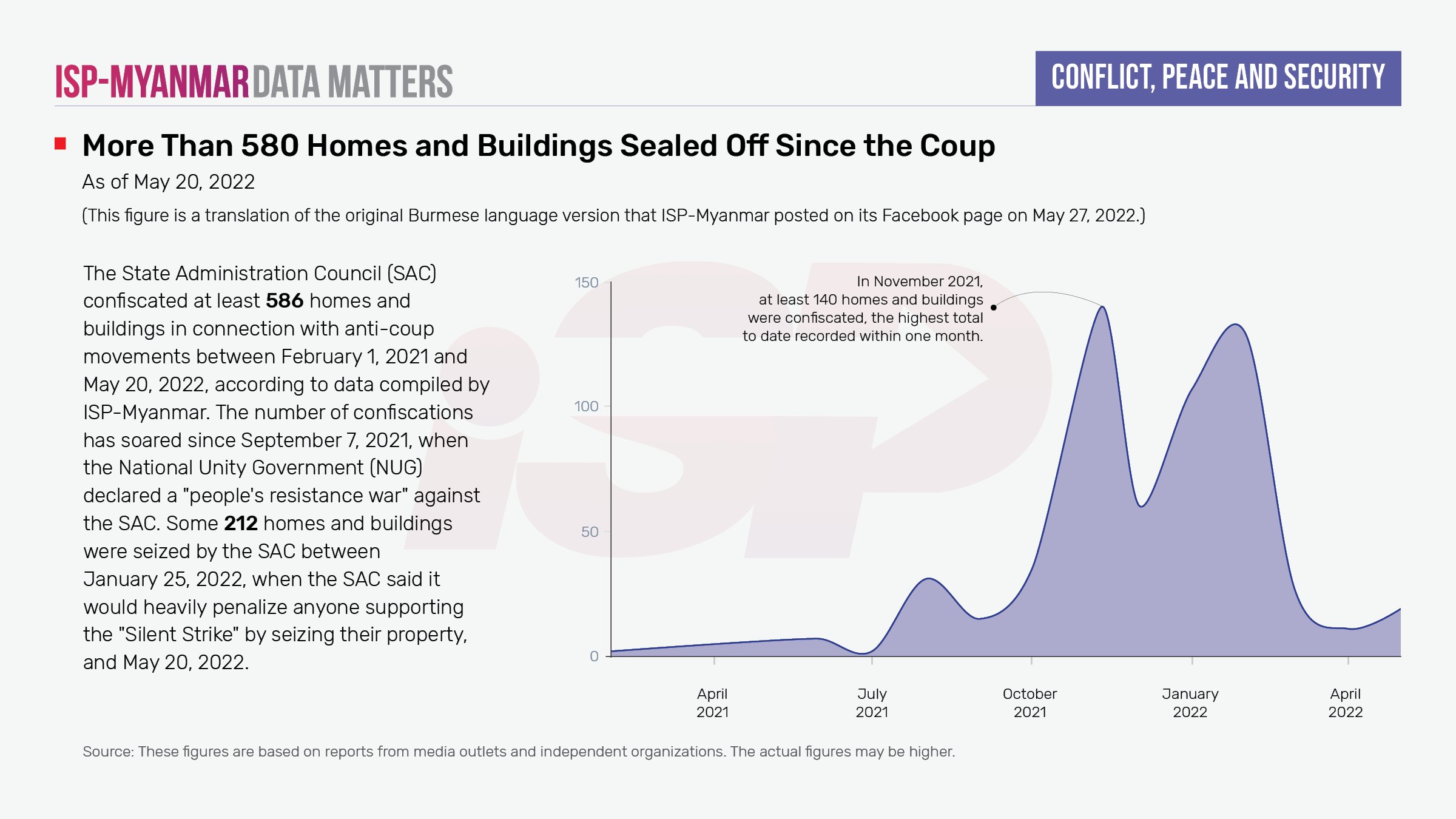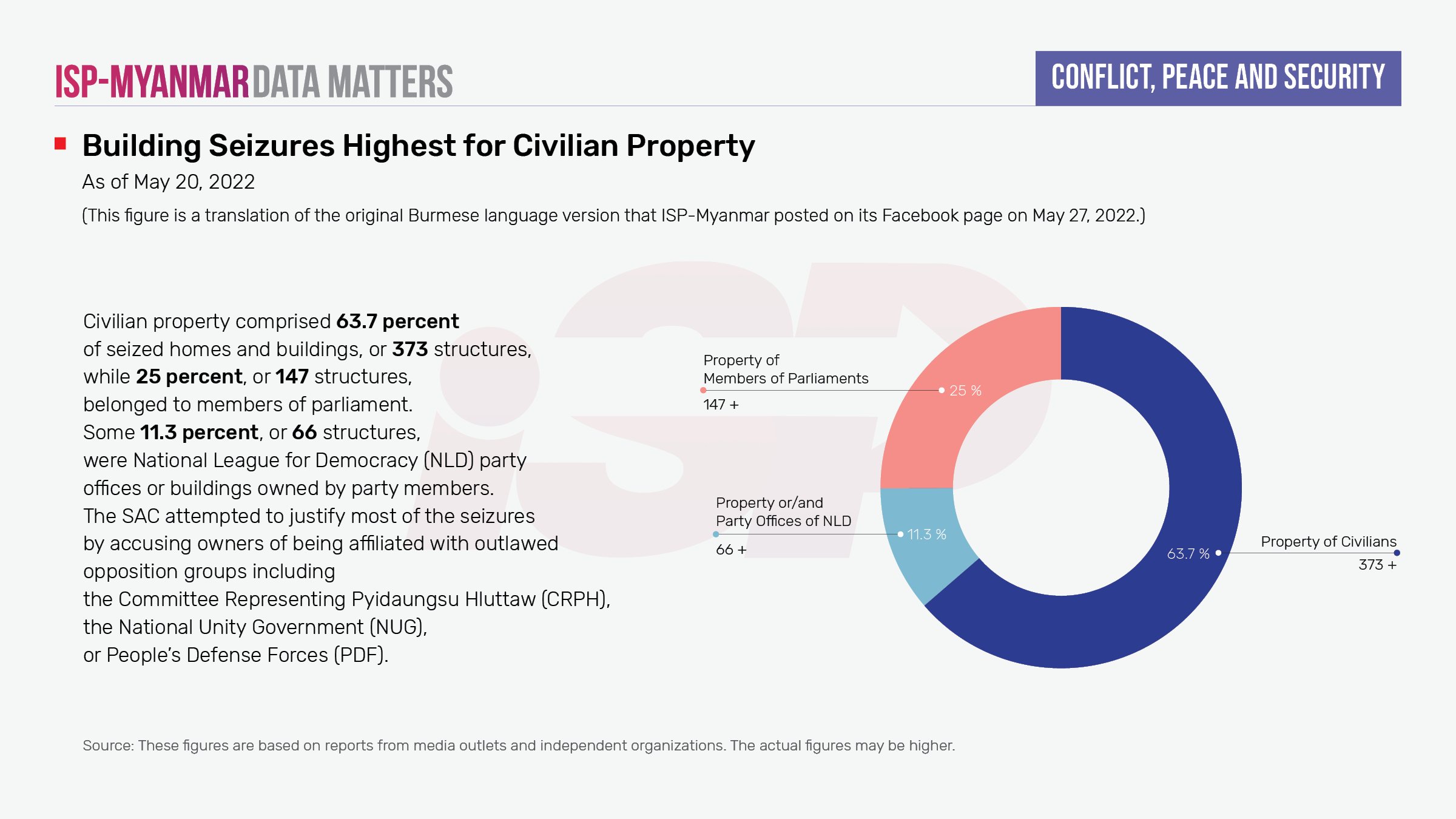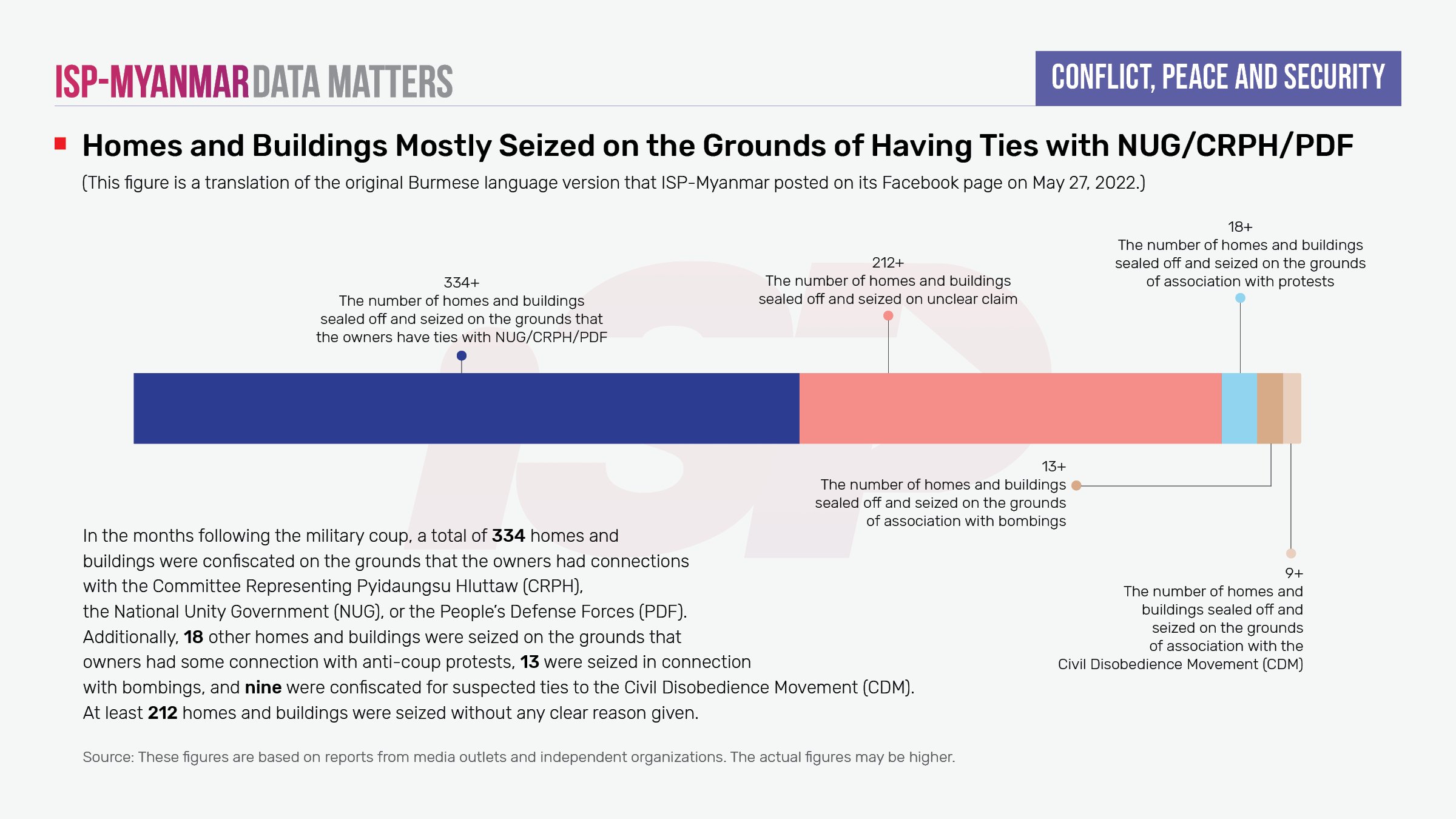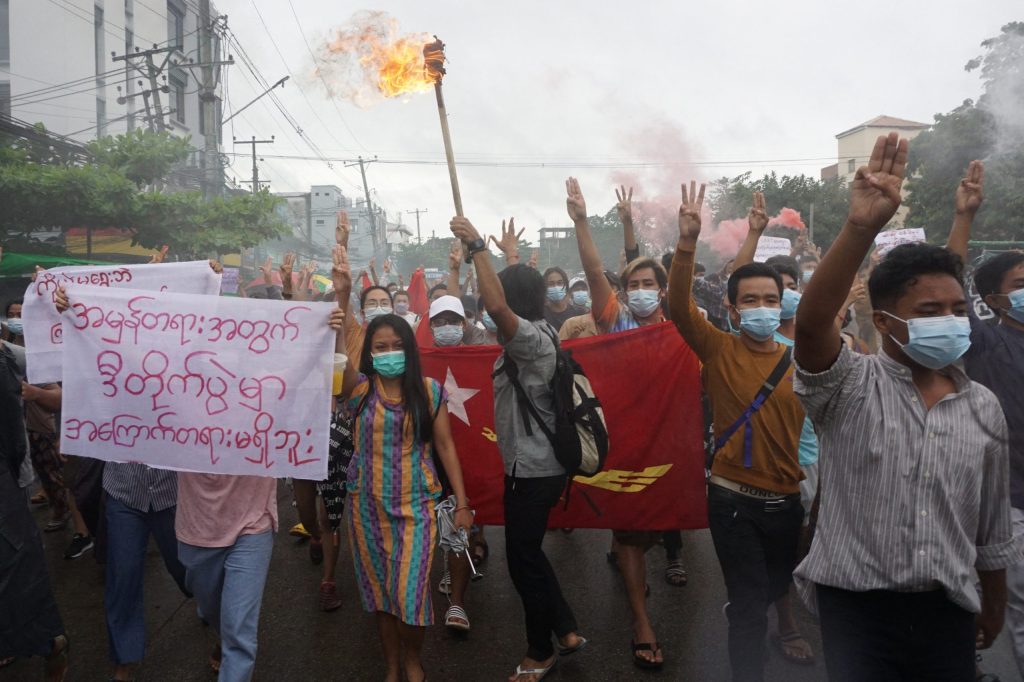Data Matters No. 21
(This article is a translation of the original Burmese language version that ISP-Myanmar posted on its Facebook page on May 27, 2022.)




The State Administration Council (SAC) has seized at least 586 buildings between February 1, 2021, and May 20, 2022, in connection with anti-coup protests, according to data compiled by ISP-Myanmar. Sagaing Region saw the highest number of seizures, with 159 homes and other buildings sealed off, followed by Yangon Region with 122 seizures, Mandalay Region with 88, Magway Region with 48, and Ayeyarwady Region with 47. ISP-Myanmar arrived at these figures by compiling data from media reports and other independent organizations. Actual figures could be much higher.
Civilian property comprised 63.7 percent of seized homes and buildings, or 373 structures, while 25 percent, or 147 structures, belonged to members of parliament. Some 11.3 percent, or 66 structures, were National League for Democracy party offices or buildings owned by party members. The SAC attempted to justify most of the seizures by accusing the owners of being affiliated with outlawed opposition groups including the Committee Representing Pyidaungsu Hluttaw (CRPH), the National Unity Government (NUG), or People’s Defense Forces (PDF).In a statement released on May 10, 2022, the NLD said the SAC had sealed off access to 166 civilian-owned homes and businesses, 101 homes and businesses owned by NLD party members, and 152 structures owned by members of parliament. Additional information from the Assistance Association for Political Prisoners (AAPP) indicates that the SAC has seized more than 570 homes and other buildings across the country between February 1, 2021, and the end of April 2022.
∎ Why does it matter?
An analysis of the confiscation of the properties associated with people imprisoned since the February coup within various categories since the February coup demonstrates the SAC’s use of pillars of justice to suppress its opponents. Studying these figures offers a way to assess whether or not Myanmar’s armed forces are using the justice system to crack down on its opponents from the perspective of transitional justice.
∎ Other relevant readings
Independent media and independent organizations such as the Assistance Association for Political Prisoners (AAPP) have monitored and collected detailed data on the number of people arrested for participating in anti-coup protests and the seizure of properties belonging to protesters and activists that have been in-hiding since February 1 military coup.

